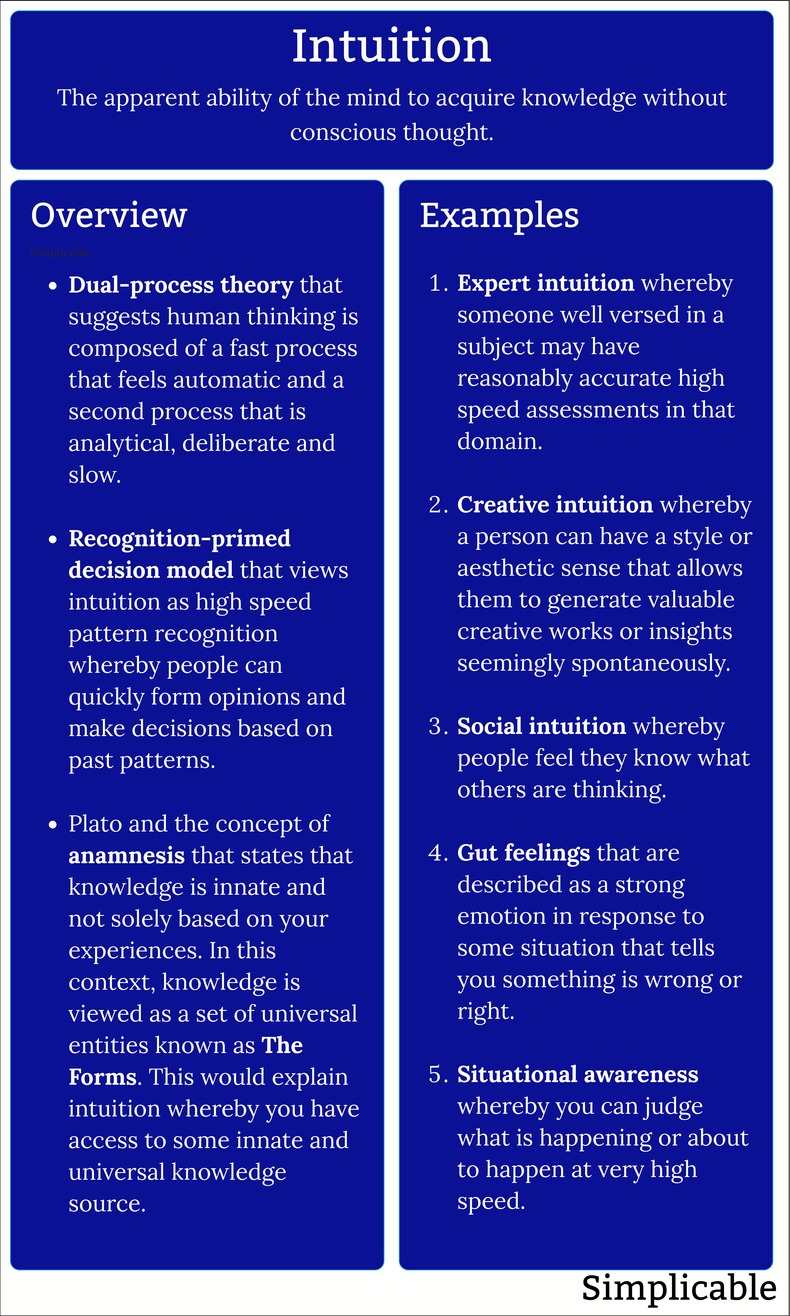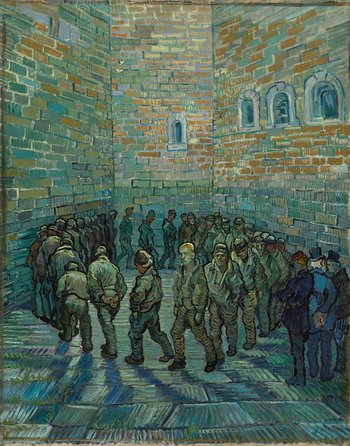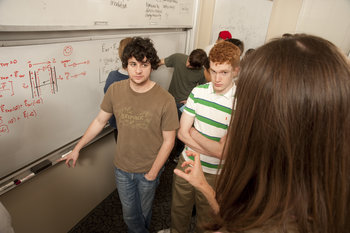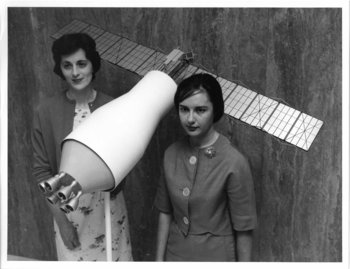
Unconscious Cognition
It is known that the unconscious mind plays a significant role in conscious thought. Historically, this was thought to be a relatively passive role such as organizing memory. The current trend in neuroscience is to view the unconscious as more active in solving problems. As such, intuition may be perception of knowledge that has been prepared by unconscious thought processes. This could explain the common experience where an answer suddenly comes to you after a long period of thinking about a problem.Instinct
Instinct is a tendency for an organism to pursue a particular pattern of complex behavior. Instinct is commonly confused with intuition. For example, people are believed to have a herd instinct. Sudden and unexplained conviction to do something everyone else is doing could be explained by this instinct.Suspension of Logic
As intuition isn't really understood, it could be suggested that intuition is simply the suspension of rational thought whereby an individual gives in to other mental processes such as motivation and emotion. Indeed people may easily confused intuition with motivation and emotion. However, this doesn't appear to explain all intuition such as the ability to acquire solutions to complex problems in a moment of serendipity.Conscious Thought
Intuition may simply be a type of conscious thought that occurs so quickly you forget it. For example, a pilot who appears to know where pockets of clear air turbulence will appear who is quickly applying patterns gained from experience. This may use the facilities of conscious thought without involving language or visual thinking that tend to be more memorable types of thinking.Memory
It is possible that the brain may store solutions to common problems as general patterns in memory that are instantly usable as intuition. For example, a bank teller who has seen thousands of examples of nervous people in their life who can intuitively tell that a customer is nervous by recalling a pattern of behavior from memory.Unified Mental Processes
There are a large number of pseudo-scientific theories that propose to explain intuition. A common theme of these is that intuition is some type of unified mental process between functions of the brain that don't always cooperate. This includes the idea that intuition is the output of the entire mind working as a unified entity where regions of the brain are usually specialized. This is a wild and unlikely theory that is perhaps interesting nonetheless.Collective Unconscious
The collective unconscious is the theory that all humans have a shared pool of knowledge that is composed of things like instincts and universal symbols known as archetypes. This was first proposed by Carl Jung who viewed it as the unpinning of the unconscious mind and intuition.Self
The theory that intuition is a connection to a "true self" such as a spirit. This is a common explanation in the context of religion and spirituality that may emphasize that you can obtain all knowledge within the self without need of external observation. For example, this is a common thread of Zen Buddhism where koans are used to cultivate an intuitive understanding of life.Mysticism
The ancient Greeks viewed intuition as a connection to a universal and timeless force known as the daimonic. Socrates explained this as a connection to gods or the children of gods and was known to fully base decisions on what we would call intuition. For example, Socrates explains his decision not to go into politics as being a result of intuition. Plato viewed intuition as a connection to universal, timeless and unchanging entities he called the Forms.Summary
The ability of humans to form instant evaluations of situations without being able to identify the cognitive source of this information. This is viewed as a near universal experience that currently has no generally accepted explanation.
| Overview: Intuition | ||
Type | ||
Definition (1) | The apparent ability of the human mind to acquire knowledge without conscious thought. | |
Definition (2) | The ability to understand something instantaneously, without the need for conscious thought. | |
Related Concepts | ||
































